Quality of Life Guide
What you’ll find in this guide
Useful information and insights to help you through moments that can impact the quality of life for you and your family-especially your senior loved ones.
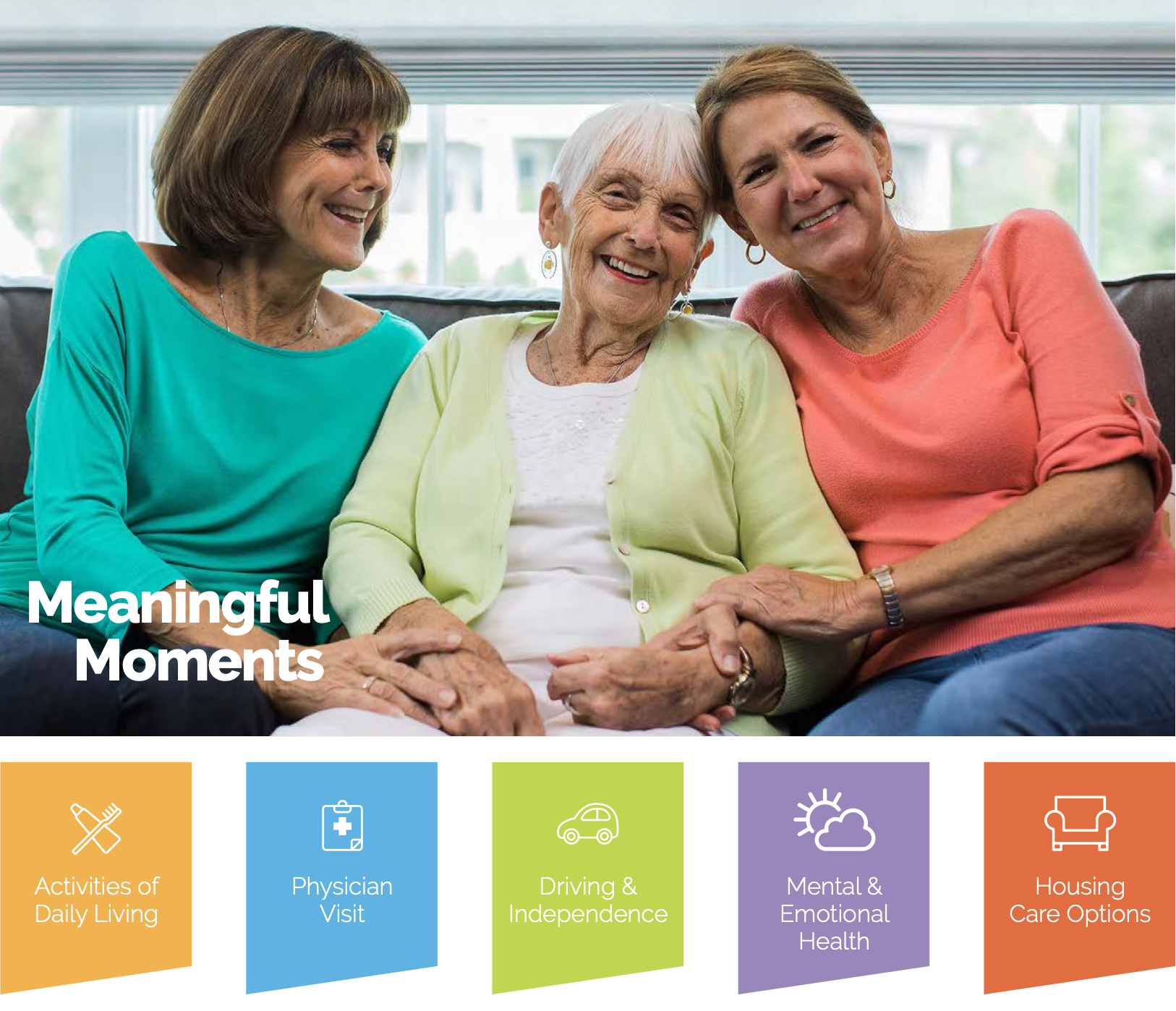
What is the quality of life?
Evolving
At a basic level, quality of life is a combination of health, comfort, and happiness. It’s a simple formula that is always evolving. Think about what it took to be healthy, comfortable, and happy as a kid compared to feeling this way about your quality of life today. Everyone’s quality of life equation changes with age, and each variation profoundly impacts their well-being.
Personal
Life comprises moments that we share with other people and experience ourselves. All of these moments factor into our quality of life formula. For many seniors, most of these moments happen at home. To help your loved ones enjoy the quality of life they deserve, you should create moments that enable them to preserve their dignity and bring them joy and purpose in the comfort of their homes.
A family Affair
A healthy family dynamic means having the ability to meet each family member’s needs on an individual basis. While it can be easy to get carried away with the worry and responsibility of caring for your family members, giving your best is difficult if you’re not at your best. So, look for moments that signal you could use some help. Knowing when to reach out can make a big difference in your family’s quality of life.
What you need to know
Tasks essential for day-to-day functioning
Activities of Daily Living, sometimes referred to as ADLs, include routine tasks in everyday life. Bathing, dressing, eating, using the restrooms, moving around the house, and getting in and out of chairs are activities that most of us take for granted but can become challenging for seniors. Seniors who cannot safely and effectively manage these activities independently need help.
If you think you or your loved one needs help to be safe, healthy, and happy at home, talk to them and discover what’s happening. Let them know you care and worry about them. Then, discuss the situation with your family and your loved ones doctor. You can also contact a reputable in-home care provider, like us, for a free consultation.
What to look for and when to seek help
While activities of daily living typically include basic hygiene routines and mobility, challenges with Instrumental Activities of Daily Living (IADLs) commonly present themselves first. Although IADLs are considered less basic than traditional ADLs, they are essential to enhancing your loved one’s quality of life.
According to AARP, seniors often need help with:
- Transportation
- Grocery shopping
- Housework
- Meal preparation
- And more
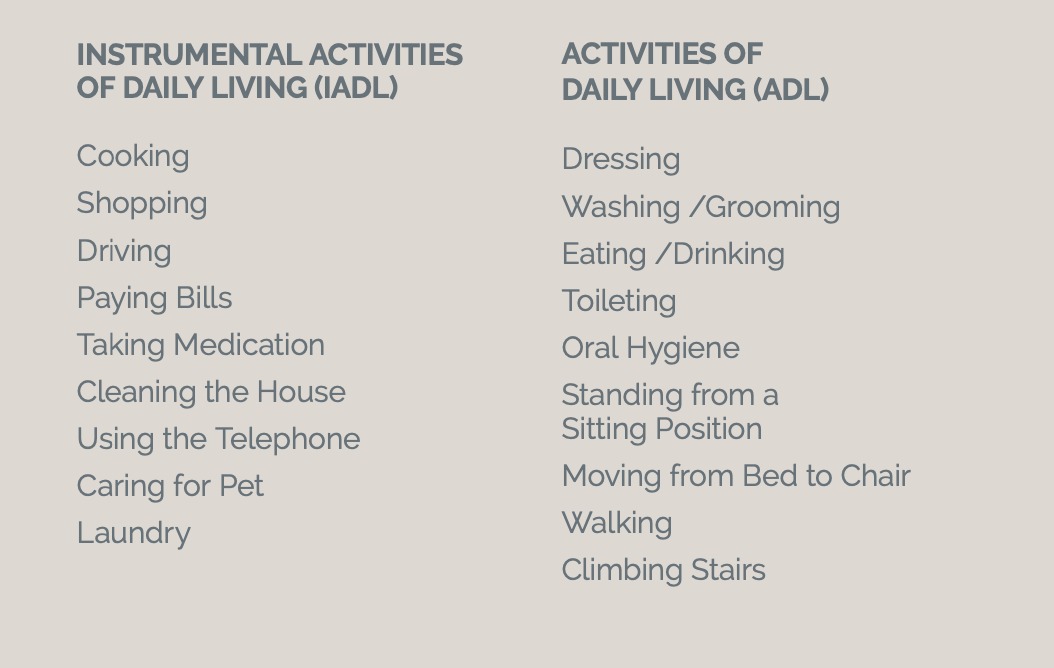
Signs you or your loved one may need assistance with ADLs
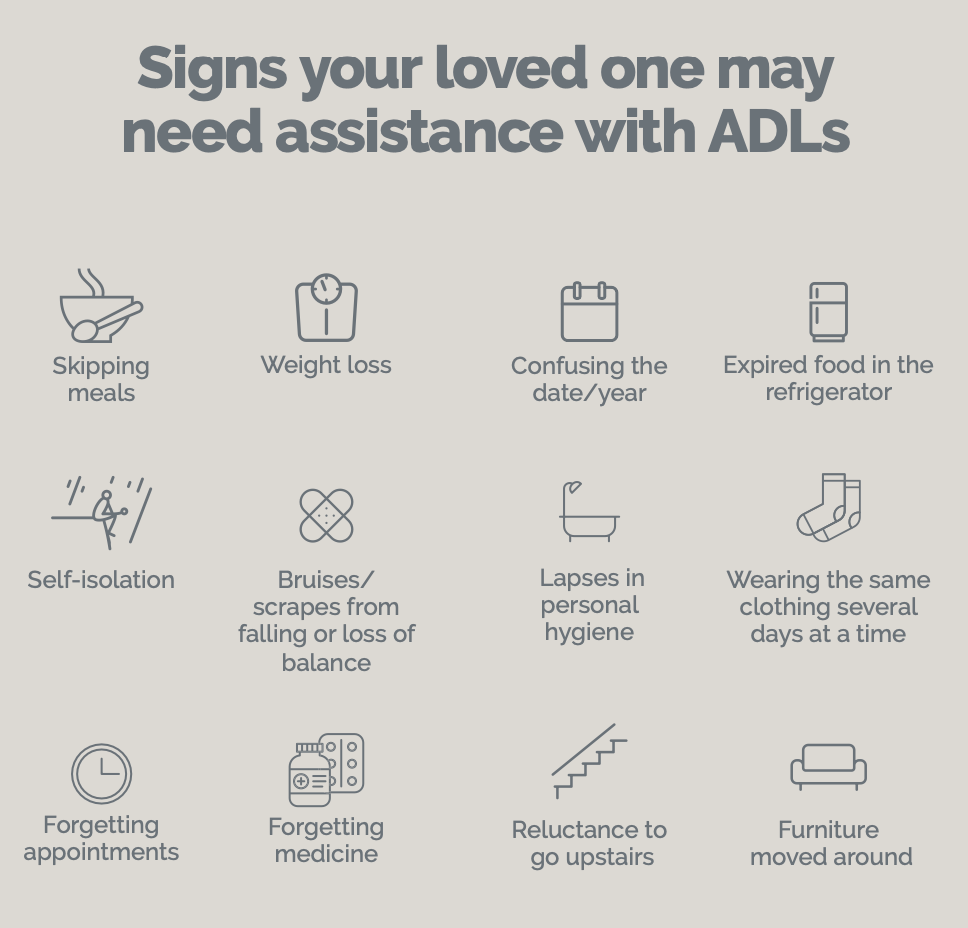
Knowing what to ask so you know how to help
When it comes to the health and well-being of your loved one, their doctor is an indispensable resource.
So, if you have concerns about whether you are meeting your loved one’s quality of life needs, a visit to the doctor’s office is a great way to get more guidance on how you can help.
Plus, being there to hear what the doctor says firsthand can minimize misunderstandings, allow you to show support for your loved ones, and make them feel more comfortable during their visit.
Questions to ask
Diagnosis
- What is the name of the condition?
- What causes this problem?
- How will it be treated/managed?
Medications
- What is the name of the medication?
- What will it treat?
- What are the common side effects?
Medical Tests
- Why is this test being done?
- What are the possible side effects?
- How will we find out the test results?
When and how to ask for the keys
Driving is empowering. Behind the wheel, we have the freedom to go where we want when we want. And for the generations that grew up during the glory days of American car culture, the connection between driving and independence is deeply rooted. It’s part of who they are.
So, when you notice that your loved one is losing the ability to drive safely, it’s important to talk to them about it in a non-confrontational way that shows your concern without damaging their pride. Remember, you are not just asking them for their keys; you’re asking them to give up some of their independence.
Warning signs
- Damage or unusual wear on the vehicle
- Tickets or fines
- Improper car maintenance
- Fearful or skittish about driving
Starting the conversation
“I’m worried about you, and I want us to be on the same page. Can we talk about your driving?”
“Dad, how’s driving been? Is it hard to see the lines on the road, see the traffic light colors, and/or drive at night?”
“I noticed you’ve been catching rides with Clyde lately. Is everything okay with your car? Do you feel okay driving?
“How has your car been driving? Has the steering wheel been shaking? Has the engine made any new noises? Check engine light come on?”
Companionship and personal connections are critical
Taking care of your mental and emotional health greatly impacts your quality of life. Your frame of mind and outlook on life color all your experiences. That’s why paying attention to your loved one’s level of engagement with other people, inside and outside of your family, is critical.
Without companionship and regular personal interactions, a senior (or anyone for that matter) can become isolated and experience feelings of loneliness. If not addressed, this loneliness can lead to depression, causing them to withdraw even further. Along the way, they may stop caring for themselves and their home properly. If you feel your loved one isn’t getting the socialization required to be happy and healthy, address the issue quickly.
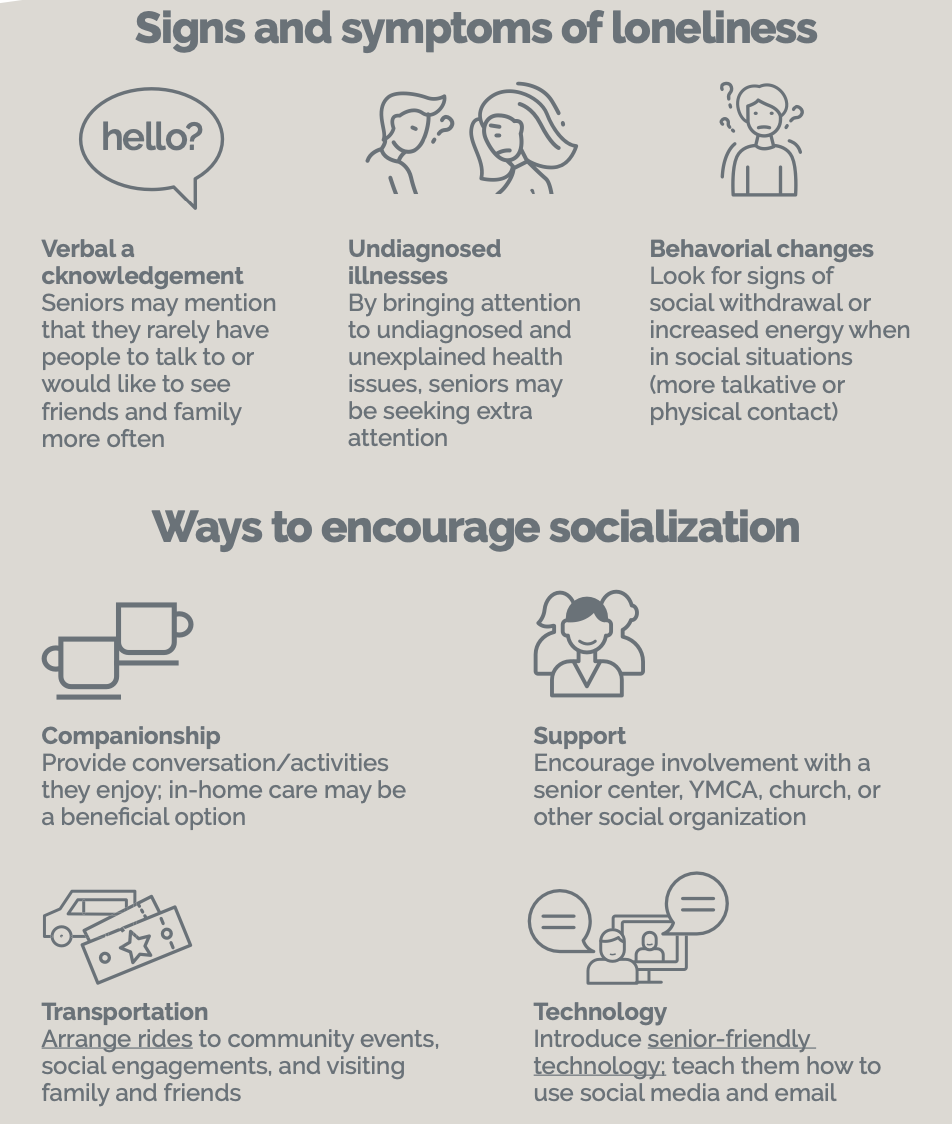
Happier at home
For many seniors, there is truly no place like home where cherished memories of family and friends exist around every corner. That’s why, when given a choice, most seniors would rather stay in their homes as they grow older. This is also known as aging in place.
While aging in place is preferred, the challenges of daily household tasks, like cleaning, yard work, or basic repairs, can drive families to take unnecessary measures, such as seeking help from off-site facilities or assisted living communities.
However, cost-effective alternatives enable seniors to preserve their independence. In-home care allows you or your loved ones to maintain hope and connectedness and experience purpose and joy.
Determining care options
- What does your loved one want? What are their needs?
- Do you, your siblings, or other relatives live close enough to provide or supervise care?
- Does your parent require regular medical care as well as assistance with activities of daily living?
- Do they need to move to get the help they need?
- Would they benefit from one-on-one interaction?
- How much help do they need?
- How much care can you realistically provide?
- What are your long-term plans?
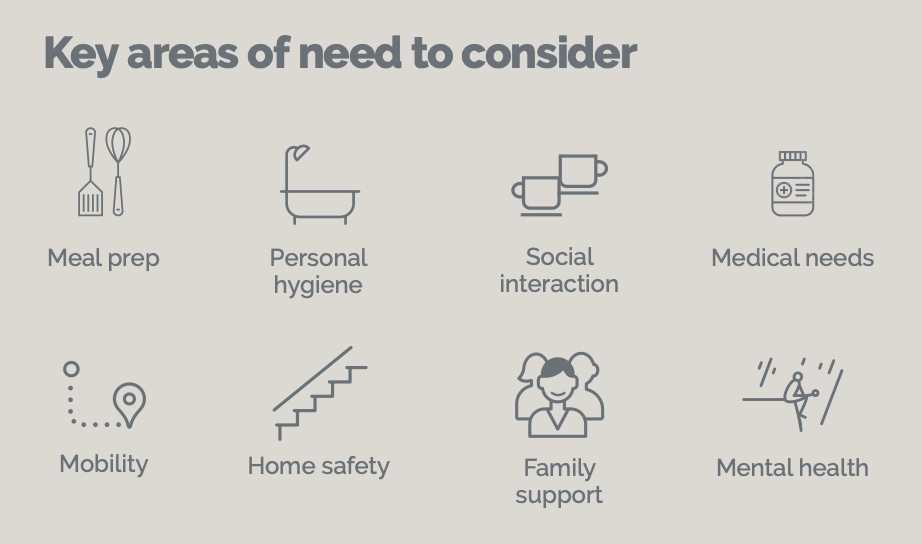
Quality of life is our mission
Two decades of service at Comfort Keepers have shown us that care can transform a life, create a lasting friendship, and elevate a person’s spirit.
We provide in-home care services, technology, and advice that fit your family’s needs today and evolve for tomorrow. We’re here to help you. Contact us today!









